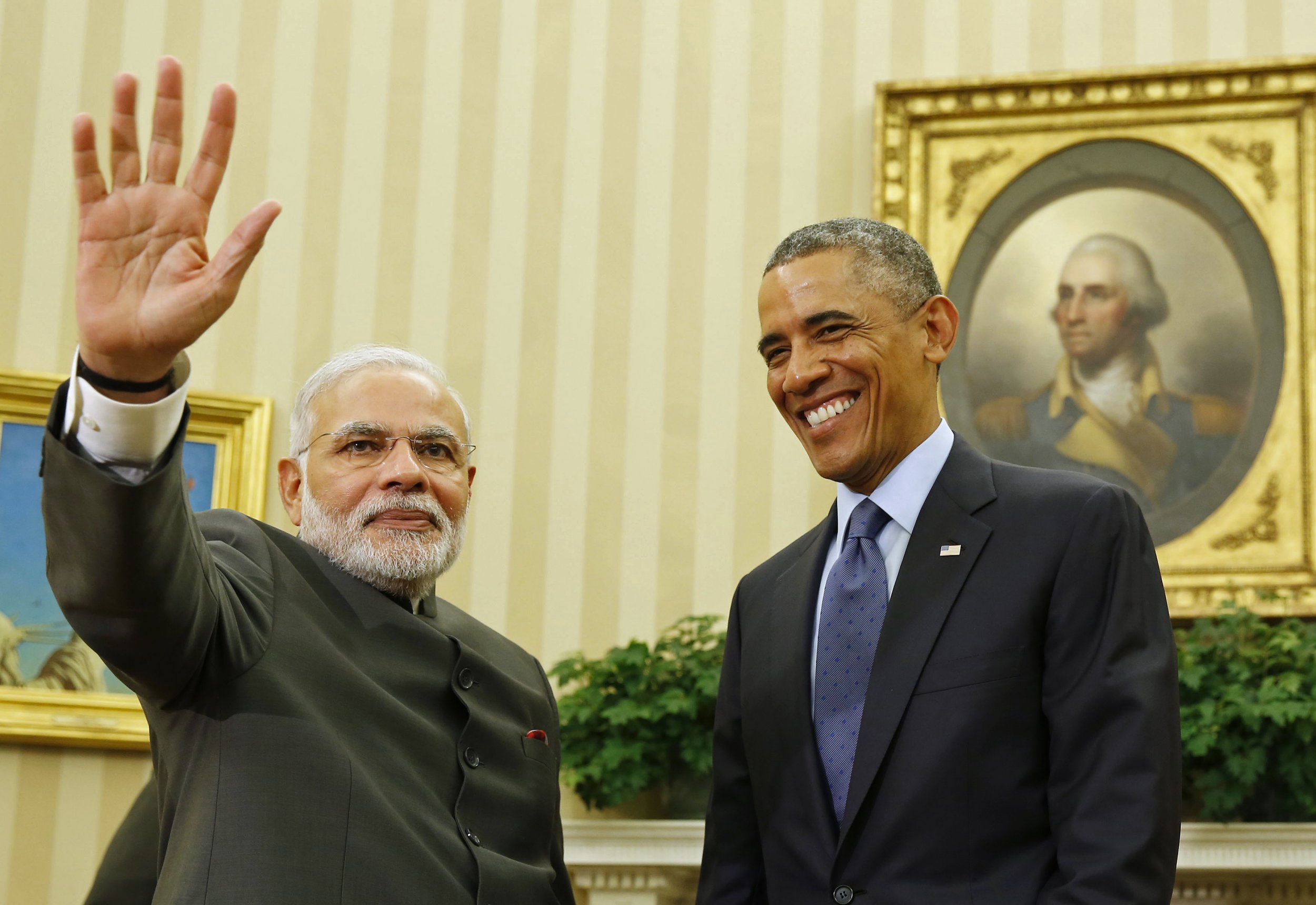
Delhi's international airport was closed for two hours yesterday morning because President Obama is visiting India. He wasn't, however, in the country and is not arriving for another four days, but everything is being rehearsed down to the finest detail, even closing the airspace around the capital.
That is partly because of intense and almost suffocating security arrangements that are being insisted on by Obama's secret service officials, but it is also because any bureaucrat who mucks up the three day visit knows he will earn the unenviable wrath of Narendra Modi, the prime minister.
This is no ordinary visit. It will probably achieve little in terms of major decisions, but it is historic because it stems solely from a degree of personal rapport between the two men that must be envied even by David Cameron, the latest of a long line of British prime ministers who pursue high-profile special relationships with American presidents.
The idea of the visit emerged when Obama unexpectedly broke with U.S. presidential tradition and accompanied Modi on a visit to Martin Luther King Jr.'s memorial in Washington, D.C., early last October. While they were walking round the memorial, Obama had an unusual worry, Aditi Phadnis the Business Standard's well-connected political editor has reported.
"My daughters, Sasha and Malia, complain that I've taken them all round the world but not to India," Obama told Modi. (When Obama visited India in 2010, his wife Michelle accompanied him but their daughters were left in Washington because of school commitments.)
"Then you should come to India and bring them with you!" exclaimed Modi. At the end of his bilateral meeting speech, Modi said: "I look forward to receiving President Obama and his family in India at a convenient time." The visit was on the table and was clinched when the two leaders met again a few weeks later in Myanmar at an ASEAN summit. Obama accepted an invitation to be the official guest at India's annual Republic Day parade on January 26, even though this meant shifting his State of the Union Speech from January 28 to yesterday.
This shows a remarkable rapport between the two men, but it does not mean there is to be a sea change in relations. The two countries are not and will not be allies, even though Modi did use that word around the time of his highly successful U.S. visit last October. This is because India's refusal to toe the American line on various issues, which is causing considerable friction.
There is deep unhappiness in Washington about India not implementing sanctions against Iran and allowing Crimea's prime minister to be in President Putin's delegation when he visited Delhi in December. India is also not playing ball on a trans-Pacific treaty promoted by the U.S. There are other issues including trade policies and defense contracts, plus a failure to solve contractual liability problems stemming from a 2008 deal on nuclear-power projects. Some but not all of these have either been addressed or will be during the visit, especially on defense.
Modi sees foreign policy primarily as a vehicle for building relationships that will attract foreign investment and technical assistance to boost India's currently poor economic growth and business investment and he does not differentiate between the sources.
In a spate of visits that started soon after he was elected last year, Modi secured (unspecified) announcements of $35 billion potential infrastructure investment in Japan and $41 billion possibilities from companies in the U.S. There was also talk of a very vague $20 billion from China when President Xi Jinping visited India in October. Putin's trip to Delhi in December led to other possible deals, and it is significant that Russia's defense minister has been in Delhi this week—another point that cannot please Washington.
Next weekend's visit is, however, enabling the U.S.-India relationship to be reset and reinvigorated. It slipped during the 2009-2014 Congress-led government when there were various policy and other blockages and there was no leadership from either Obama or Manmohan Singh, India's prime minister. That was enabling critics in Washington to encourage problems that were not solved.
Modi can now be expected to try to keep the momentum going after all the hullabaloo at the weekend. His immediate task, however, is to make sure that Obama's family trip goes smoothly, without terrorist or other interruptions, so that the American president and his wife and daughters enjoy the Republic Day parade and a visit to the Taj Mahal at Agra on January 26 and 27, and then fly safely home.
John Elliott's new book is IMPLOSION: India's Tryst with Reality (HarperCollins, India). He can be read at ridingtheelephant.wordpress.com.
Uncommon Knowledge
Newsweek is committed to challenging conventional wisdom and finding connections in the search for common ground.
Newsweek is committed to challenging conventional wisdom and finding connections in the search for common ground.





